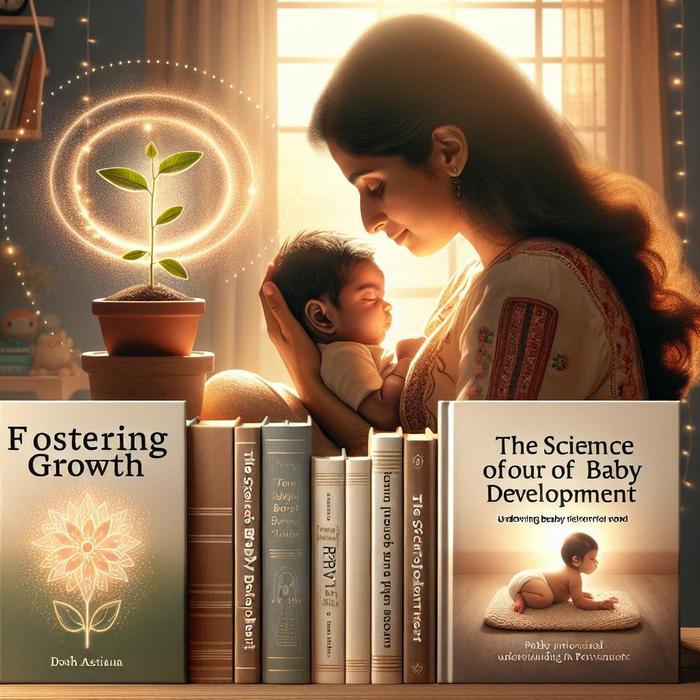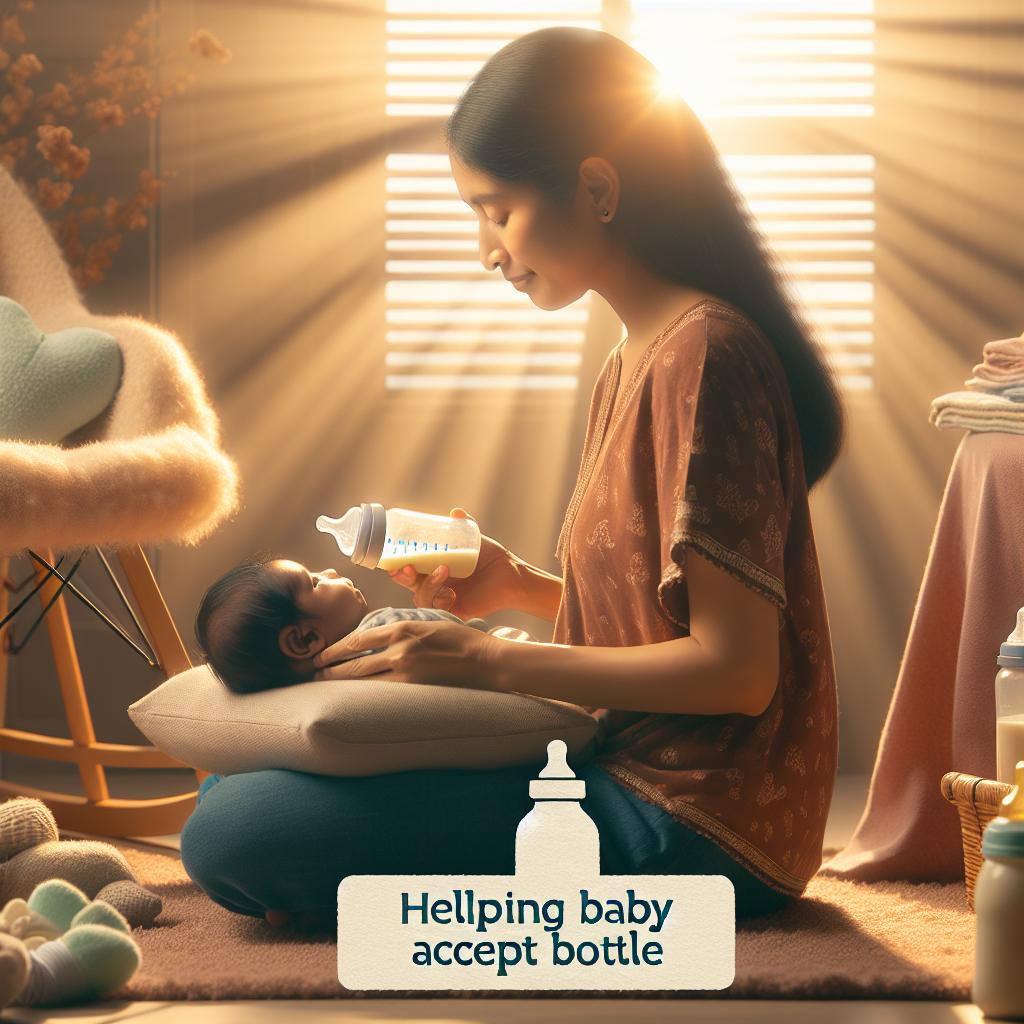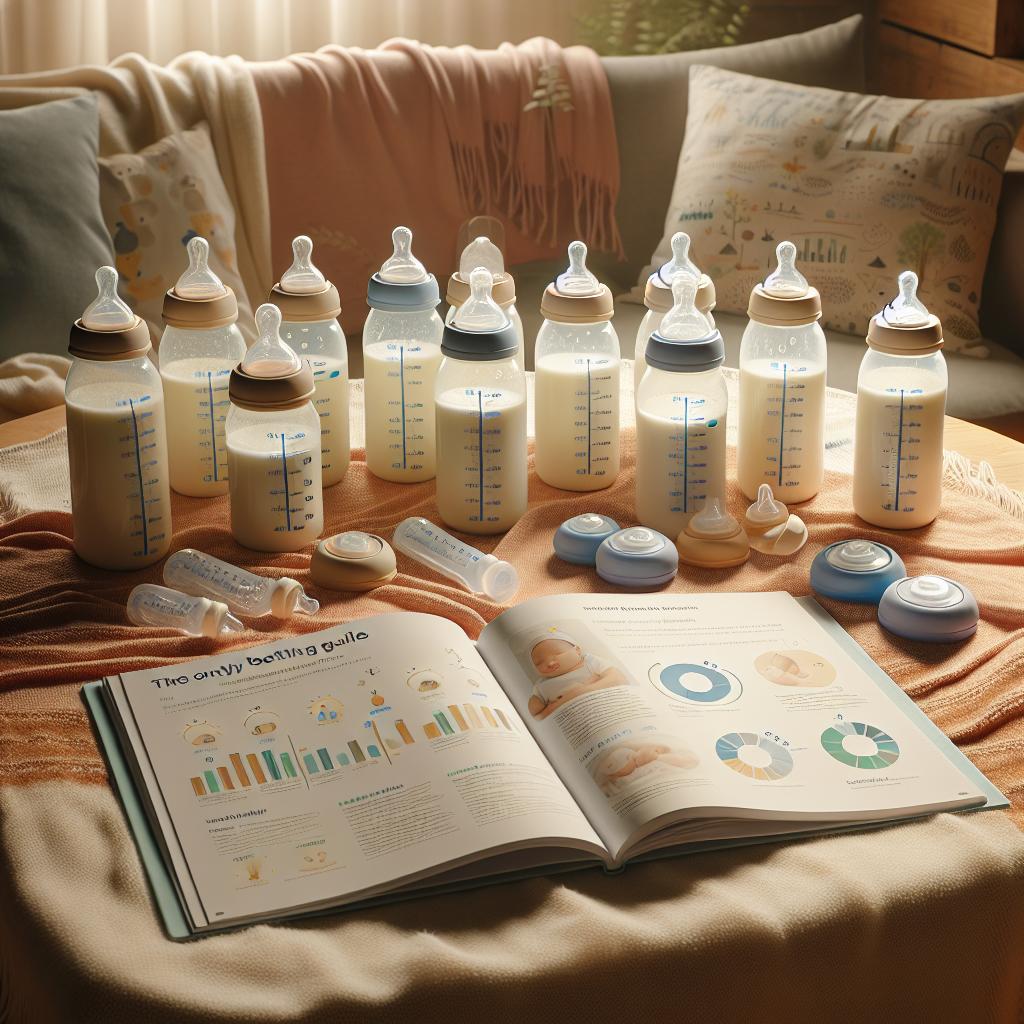Understanding Baby Development
Child development is a fascinating journey each new parent embarks on. From the very first giggle to the initial roll-over, every milestone your baby accomplishes is an exciting moment. However, it’s not just about capturing these moments on camera, but also about understanding the importance of nurturing your baby’s growth and development. Let’s delve deeper into the world of baby development and find out how parental involvement can significantly impact your little one’s progress.
The Importance of Nurturing Growth
Several research studies have established the significance of parental involvement in a child’s development. Being active in your baby’s life, starting from infancy, lays the foundation for a secure and healthy upbringing. According to a study published by the National Center for Biotechnology Information, nurturing growth and development during early childhood can positively influence a child’s socio-emotional functioning.
Guiding Your Baby Through Key Developmental Milestones
While each baby develops at their unique pace, there are general milestones to watch out for, including rolling over, sitting up, crawling, and walking. These milestones give you a heads-up about your baby’s physical development. But nurturing growth is not limited to physical development alone. It also involves fostering their cognitive and emotional growth. This is where your role as a parent comes into play.
- Nurturing Physical Growth: Your baby’s physical development is fast-paced during the first year. You can aid this growth by providing a safe environment to explore and play. Incorporate tummy time into their routine to strengthen their neck and shoulder muscles. Using essential baby products can also help in enhancing physical development.
- Boosting Cognitive Development: Cognitive development refers to your baby’s learning and problem-solving abilities. Engage them with age-appropriate toys, read to them regularly, and interact with them. The more you communicate, the more they learn about their surroundings.
- Encouraging Emotional Growth: Building a secure emotional bond with your baby is crucial. Responding to their needs and cues helps create a trustful relationship, fostering a sense of security. Secure attachment can be beneficial for their overall emotional health.
Parental Involvement: The Key to Holistic Child Development
Being involved in your child’s life goes beyond providing for their basic needs. It involves investing your time and effort to enrich their learning experiences, empathizing with their emotions, and fostering a sense of security and attachment. Your active participation in their day-to-day activities not only aids their development but also strengthens your bond with them.
According to the World Health Organization, promoting healthy growth and development should start from infancy. Engaging your baby in interactive activities, responding to their needs promptly, and nurturing a healthy attachment plays an instrumental role in fostering their growth.
Nurturing Growth: Taking Baby Steps
Baby steps are all it takes to make a massive difference in your child’s life. Whether it’s spending a few more minutes playing with your baby, reading to them before bedtime, or merely responding to their coos and babbles – every little interaction counts. Let’s keep in mind that nurturing growth is a continuous process. It’s not about rushing to reach milestones, but cherishing the journey that leads to it.
In the next section, we will delve deeper into the role of parental involvement in a child’s growth. We will explore practical ways to engage with your child, stimulate their senses, and foster an environment conducive to their holistic development. Stay tuned!
Parental Involvement: A Deeper Dive
Parental involvement is more than simply being present. It involves thoughtful, meaningful interaction with your child that stimulates their minds and their emotions. Let’s explore concrete ways that parents can involve themselves in their child’s growth and development process.
- Open-ended play: Let your child lead playtime, and use it as an opportunity to engage and interact with them. Whether it’s block-building, role play or outdoor play, these activities offer plenty of opportunities for physical, cognitive, and social skills development.
- An engaging environment: Create a stimulating environment for your baby that encourages exploration and curiosity. Use toys and activities that support their current developmental stage and provide opportunities to promote the development of fine and gross motor skills, as well as cognitive abilities.
- The importance of reading: You can never start too early when it comes to reading. Reading to your baby introduces them to language and can significantly assist in their cognitive development. Choose age-appropriate books with bright colours and different textures.
- Regular interaction: Like any person, a baby thrives upon interaction. Make eye contact, respond to their noises and movements, and give them plenty of affection. Regular, meaningful interaction forms the basis for a strong, secure attachment, and can significantly bolster their emotional development.
Incorporating a Growth Mindset
Estelle Giraud, a psychology researcher and mum behind the Nurtured Noggins blog, emphasizes the importance of incorporating a growth mindset in parenting. Instead of focussing on achieving milestones as quickly as possible, the focus should be on the growth process.
When you celebrate your baby’s every little progress, you’re fostering a positive environment wherein trying, learning, and growing are emphasized over simply succeeding. Maintaining a positive attitude and being patient allows healthy development to take place naturally, and at the child’s own pace.
The Journey, Not Just the Milestones
The journey of baby development is as unique as your child. Every coo, giggle, roll, crawl, and step is an adventure unto itself, and worth celebrating. As parents, our role is not to rush them through milestones, but to support and cheer them along their individual growth journey.
Having a happy baby isn’t just about hitting milestones on time. It’s about engaging them in activities that develop their personalities and abilities, fostering a secure attachment, and providing an environment where they can safely explore, dream, and grow. Further, Nurtured Noggins reiterates a cheerful and content baby embodies a variety of facets encompassing regular interaction, emotional security, and an enthusiastic approach to learning.
Takeaway
Every interaction, be it big or small, has the potential to impact your child’s development. By understanding the importance of your role in facilitating your baby’s growth, you’ll be able to make the most of these precious years, while nurturing a relationship that will last a lifetime.
We’ll be back with more insights and tips on baby development, so stay tuned!







